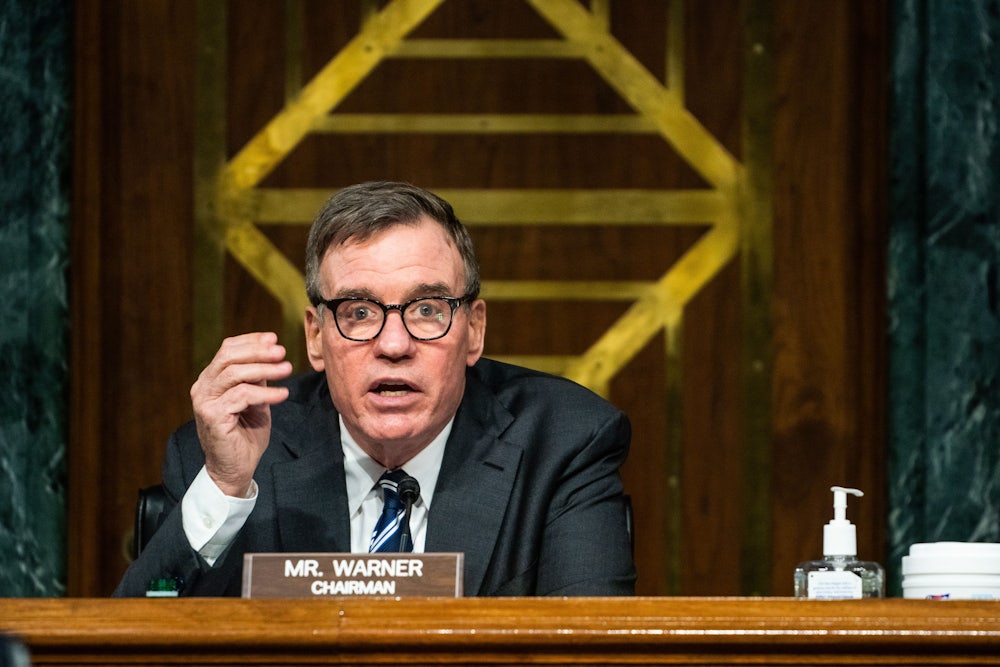Several recent articles, after taking stock of the apparently increasing divide between Big Business and the Republican Party, its traditional political ally, have speculated about the potential for an alliance between the business community and its traditional political antagonist, the Democratic Party. These include an April 14 piece in The New York Times by Thomas B. Edsall, “THE MARRIAGE BETWEEN REPUBLICANS AND BIG BUSINESS IS ON THE ROCKS”; one the next day at Politico from Zack Stanton titled “THE GOP-BIG BUSINESS DIVORCE GOES DEEPER THAN YOU THINK”; and a Wall Street Journal “Saturday Essay” of July 23, “HOW CORPORATE AMERICA BECAME A POLITICAL ORPHAN,” by Gerald F. Seib.
Many on the American left find the suggestion of a potential accord between the Democratic Party and the corporate business sector preposterous. But the American right wing, apparently, takes the possibility seriously—in fact, many of its members seem to believe that such an alliance already exists. Three months before Edsall’s and Stanton’s pieces appeared (and barely a week after the January 6 attack on the U.S. Capitol), Wall Street Journal columnist Kimberley Strassel was out of the gate with a panicky and threatening piece titled “BIG BUSINESS’S SHARP LEFT TURN,” with the subhead “Corporations’ new political role carries serious political and legal consequences.” What was she panicked about? “Business titans are positioning themselves as arbiters of political speech and activity,” she complained, referring to the “‘deplatforming’ of Mr. Trump” by social media companies (measures taken by social media corporations to prevent Trump from inciting further political violence using their platforms). What did she threaten? “The political fallout will … be seismic,” she thundered, explaining that Republicans’ “reflexive support of Big Business is at an end” and brandishing the possibility of legal reprisals such as unfair-trade practices and antitrust lawsuits and prosecutions.
The typical manifestations of “woke capitalism,” as it is called, up to January 6, 2021, involved corporations taking left or liberal or, if you will, progressive stances on a social or cultural issue, the most prominent example being the successful corporate political interventions in Indiana in 2015 and North Carolina in 2016 to fight anti-gay and anti-transgender legislation under consideration by their Republican-dominated legislatures (the so-called bathroom bill). A 2018 column by Ross Douthat viewed woke capital (a phrase of his devising) as a kind of political legerdemain used by corporations to distract people from the fact that they were, as always, predominately focused on their bottom-line profits, which is exactly how cynics on the left view them as well. These entities get no kudos from either quarter for the fact that they are adjusting to the racial and ethnic diversification of American society as it affects their customer base and workforce, since that, too, is a matter of calculated self-interest.
But the events of January 6—combined with former President Donald Trump’s continued insistence that he won the 2020 election, the proliferating efforts by his allies in Republican state legislatures to ensure that he might accomplish that goal next time around (through provisions allowing those bodies or their appointed agents to override the popular electoral vote in their states), and various measures to constrain voter turnout—have raised the political stakes considerably. Depending on how you interpret the incoherent, self-contradictory Electoral Count Act of 1887, such maneuvers may be perfectly legal. In a situation of dire political peril for American democracy such as this one, you might imagine the American left would find it salutary that the bulk of major U.S. corporations have taken a strong stand in favor of electoral democracy and the rule of law in states where those principles are under siege. Some on the left do embrace that point of view, but most others remain skeptical about the sincerity and durability of their professed commitments.
Of the positive interpretations of recent corporate political involvement cited in the above-mentioned articles, the one most likely to render leftists incredulous is the claim, made to Edsall by various commentators, that corporate CEOs are motivated by a deep-seated sense of morality as much as by concern with their profit margins. Robert Livingston, a lecturer in public policy at Harvard’s Kennedy School, told Edsall, “People will sometimes subordinate their self-interest to cherished values and beliefs. Many of these companies have credos and core values that are internalized by their leadership and employees, and we see leaders becoming increasingly willing to express their disapproval of … socially irresponsible politicians.” Yale Business professor Jeffrey Sonnenfeld cast a slightly different light on the matter, telling Stanton, “Basically, business leaders believe that it’s in the interest of society to have social harmony. The CEOs really care about these issues. Divisiveness in society is not in their interest—short term or long term.”
Seib wondered whether the corporate world’s estrangement from the right wing represents “an opening for Democrats to step into the void and build more ties to the business world—and for business leaders to use those ties to dampen some of the more hostile impulses among Democrats.” He received an enthusiastic response from Virginia Senator Mark Warner, who discerned the potential for a more “responsive” and “inclusive” capitalism. But David Segal, executive director of Demand Progress, told Seib: “Fundamentally we think the economy is structured in a way that we need to break up some of these big companies … and there’s no position companies can take on an issue, no matter how important, that is outside of that realm.”
The record of antitrust enforcement in the United States is, to be kind, inconsistent. Whether the radical, authoritarian evolution of the Republican Party might make a rapprochement between business and the left feasible (or, ultimately, a patriotic necessity) is an open question.










